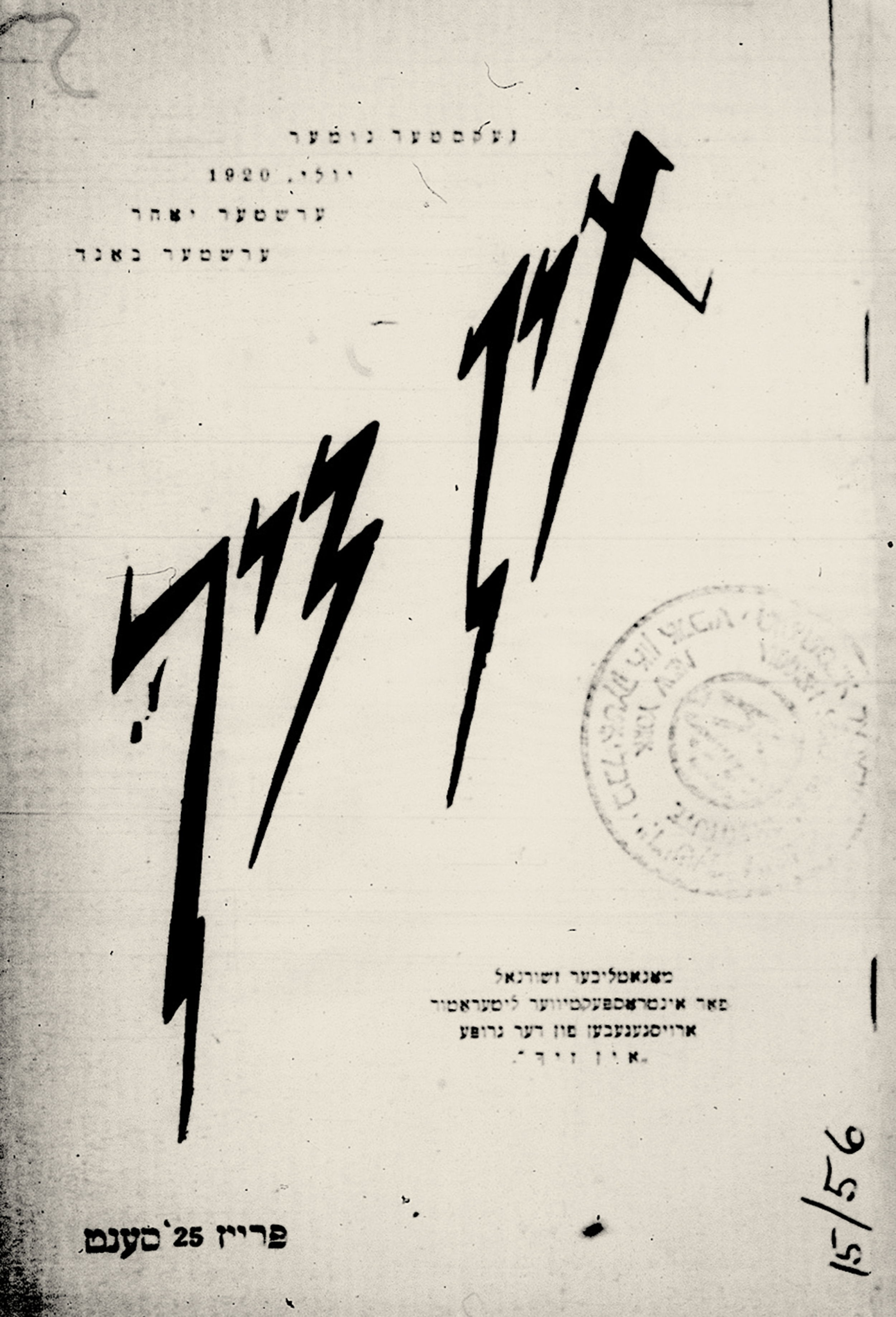Modernist Form / Modern Hegemony: Reading the Politics of Introspectivist Poetics

|
Max Weinreich Fellowship Lecture in East European Jewish Literature
The Vladimir and Pearl Heifetz Memorial Fellowship and the Vivian Lefsky Hort Memorial Fellowship Admission: Free |
Introspectivism emerged in 1919 as a vanguardist movement of Yiddish poets in New York determined to overhaul what they perceived as the parochial sentimentalism and dogmatic formalism of their Yiddish literary predecessors. In early issues of the movement’s journal, Inzikh, they aimed to produce a “cosmopolitan” Yiddish literature that would not be confined to matters of Jewish interest alone. By the 1930s, however, the group’s vanguardist tenor had shifted considerably in this respect. The journal published outspoken critiques of Jewish assimilation in America and ardent appeals to a (Yiddish-)Jewish nation, all of which seem to contradict the movement's stated cosmopolitan aims.
Many scholars have accounted for Introspectivism’s history as a story of ideological transformation from an early period of “cosmopolitan” sentiments to a late period of conservative, “national” allegiances. Recent contributions to Yiddish scholarship have, however, complicated such straightforward narratives of national reclamation. In this talk, Elias Pitegoff builds on these recent efforts by investigating the relationship between Introspectivism’s evolving poetic program and its journalistic engagement in Marxist debates on national-cultural autonomy and Soviet governmental policy, prevalent in the New York Jewish press following the 1929 stock market crash. In so doing, Pitegoff hopes to further elucidate the specific nature of the politics that Introspectivists envisioned for their poetics and highlight the prescience of their views when considering matters of cultural politics today.
About the Speaker
Elias Pitegoff is a Ph.D. candidate in the Department of German and Program in Judaic Studies at Princeton University and an independent translator. His research focuses on theorizations of aesthetics and politics in German Idealist philosophy with particular attention to how this has informed contingent views of the relation between politics and aesthetics in German, Yiddish and English language cultural production since “the Enlightenment.”




